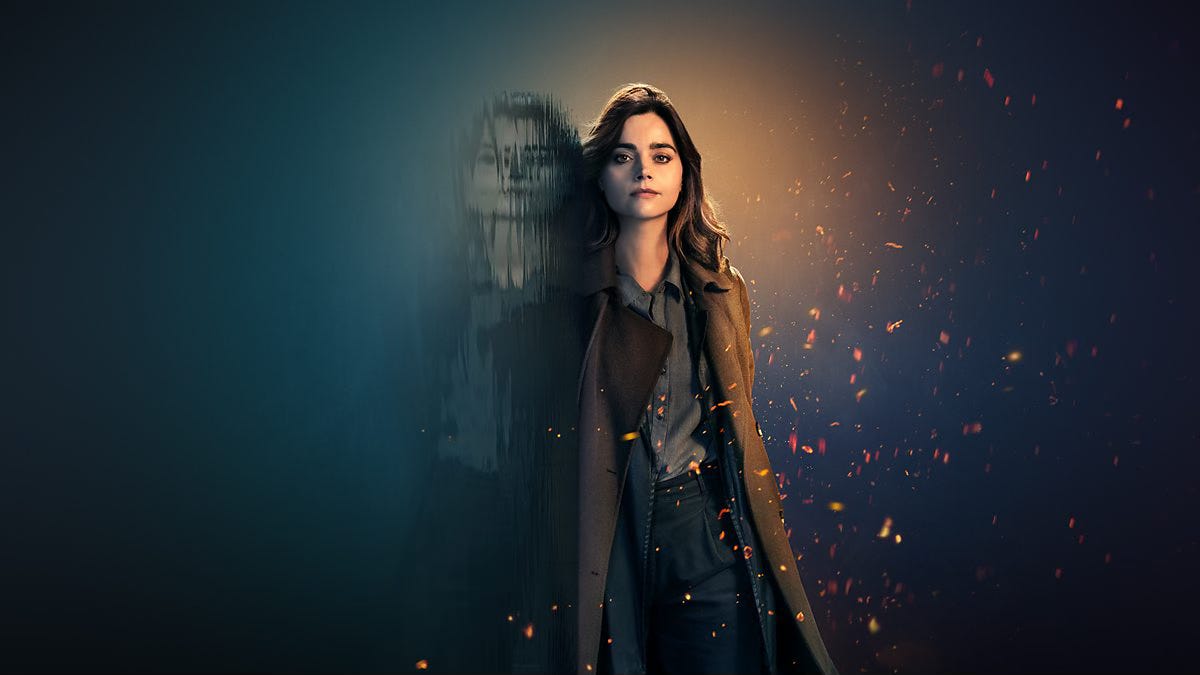The Jetty: Guardian, this is not the next Happy Valley...
Summer TV is notoriously slow like the news. At any other time of year, The Jetty wouldn't have made the cut.
TV has felt pretty uninspiring of late. The inevitable product of summer and too much sport on TV is a hostile environment for new releases. I’d concluded that I’d be waiting till Autumn, until I heard BBC’s The Jetty, starring Jenna Coleman, being advertised. And in my desperation, I didn’t need much persuasion.
Coleman’s character is DC Ember Manning and begins by investigating an arson attack on a boathouse by the eponymous jetty (yes, Ember investigating fire, I know…). It soon becomes apparent that this isn’t just a silly stunt by bored kids. Meanwhile podcaster Riz Samuel is in town, prising open the small community’s repressed troubles in a bid to uncover the truth about the disappearance of teenager Amy Knightley 17 years ago. Could these events, seemingly independent, be linked in someway? Of course! We wouldn’t have a series if that wasn’t the case. Whilst The Jetty seems to be your typical mystery drama featuring a tight-knit community abound with darkness (think Happy Valley, Broadchurch etc), at its heart is a story about consent and male violence against women and girls.
The series is certainly watchable. The plot kept me intrigued till the end and with four episodes I didn’t feel cheated of 240 minutes. Not only does it explore consent in the conventional sense, it also interrogates it through a contemporary lens when Manning’s daughter shares intimate images of herself to her boyfriend, which he subsequently sends to his mates.
Manning is particularly affected by the present day case of a pregnant 17 year old, a plot device to allow Manning to question the relationship she had with her now deceased husband. She became pregnant as a teenager with their daughter, but only now in her 30s does she see the age gap between them as potentially problematic. Reevaluation of something that seemed acceptable at the time is a dissonance that many will be able to relate to.
The message is noble and the story has potential, but The Jetty fails in its execution. ‘Clunky’ is the best way to describe it and I lay the blame largely with the writing. The dialogue between characters is predictable, unnaturally so, and used crudely to inform us of the characters and their backgrounds. But an audience has the skill of inference without being explicitly told who is who in a way which feels patronising. Hannah mockingly calls her mum ‘Detective Mum’, but I’m sure we could figure that out in some other, less ham-fisted way. The same goes with the important issues the series raises about violence against women. Ember sums it up in one line, as she stands preaching to school children: ‘I don’t believe for a second that every man is capable of hurting a woman, but we are living in an incubator for the ones who are’. Nicely put, but more suited to a tweet. The series is littered with examples of soundbites which would have been more impactful as signposts, letting the audience come to the desired conclusion themselves. A prime example of this would be I May Destroy You, a fantastic series by Michaela Coel which explores much of the same issues, but does so in a more intelligent, effective way. The Jetty just feels a bit cringe.
The coincidences that were necessary to weave the various storylines together erred on incredulity. When the pregnant girl jumped out of a window in an attempted suicide, she conveniently landed on a police car. The boathouse that goes up in flames was once owned by Manning’s deceased husband. In fact, the whole plot relies on a delicate network of coincidences, each of which in isolation wouldn’t be particularly noticeable but coalesce into a precarious foundation ready to be torn apart when scrutinised.
“Could this be the new Happy Valley?”, asked Lucy Mangan of the Guardian, who gave The Jetty a generous four stars. No would be my emphatic response. Happy Valley practically invented a genre of its own. Meanwhile The Jetty ticks all the usual crime drama conventions without really adding anything new. The characters are one-dimensional cliches, particularly the grief therapist and the obnoxious podcaster, whose dulcet tones describing the ‘darkness’ bookend the series. Yet, major caveats aside, I admit it delivered me four hours of entertainment and some fodder for a review. Will I be raving about it for the next six months, imploring you to watch it until you concede and joining you on the sofa to share the enjoyment? No - lucky you perhaps. But is it worth a watch if you have Euros, Wimbledon and Olympic fatigue, with little else on offer? Probably, but you won’t be missing much if you decide to switch off the TV altogether.
Rating: 2.5/5
Watch The Jetty on BBC iPlayer



